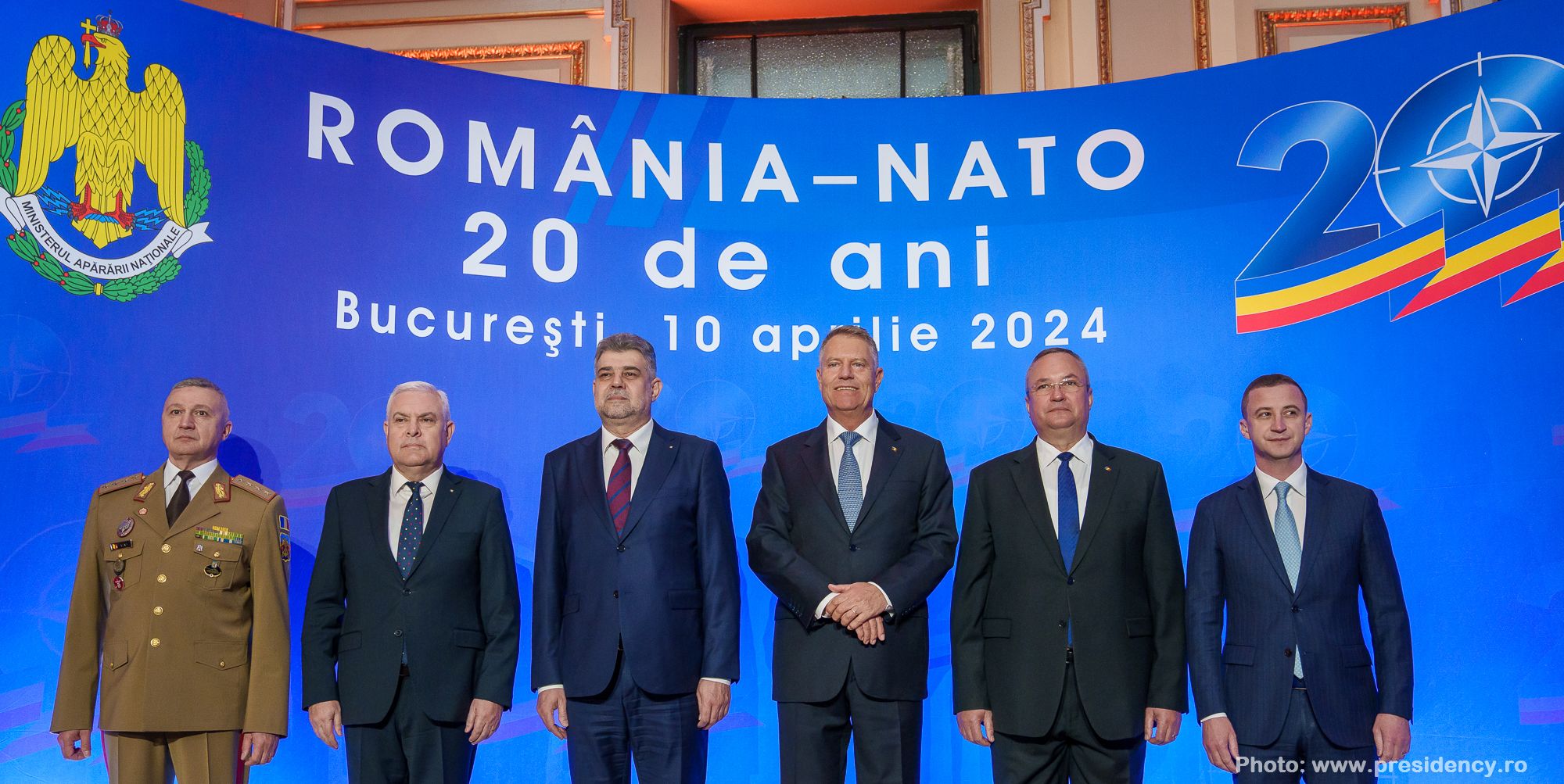NATO – Challenges on the 75th Anniversary
The anniversary of 75 years of existence found NATO in a context of international turmoil

Corina Cristea, 12.04.2024, 13:20
The anniversary of 75 years of existence found NATO in a context of international turmoil – the war in Ukraine, the conflict in the Middle East, but also the revival of terrorism. The challenges are complex and varied, with the Alliance having to be prepared to respond to cyberattacks, disinformation, and campaigns designed to undermine the stability of its members. Hybrid threats, which combine military, political, economic, and informational elements, are a major problem. ‘It’s a critical moment, let’s remember why NATO was founded’ – journalist Cătălin Lența commented for Euronews.
‘It was founded as an attempt to find an adequate response, a military one, if necessary, to external threats. We recall that after World War II, the United States was already less friendly to the Union of Soviet Socialist Republics. And this alliance emerged in order to counter possible military actions of the USSR in Europe. Where are we today? Unfortunately, in much the same situation. An attempt to counter Russian aggression in Europe. And we have been seeing this aggression since 2014, when Russia illegally annexed Crimea, and 10 years have passed since then. We saw it in 2022, in February, when it invaded Ukraine and conquered quite a large area, about a sixth of the territory of Ukraine. We see it every day through Russia’s extremely bellicose and vindictive statements towards Poland, the Baltic states, Romania, and Bulgaria. Less towards Hungary, which still maintains good relations with Moscow’, Cătălin Lența points out.
The North Atlantic Alliance stood up to the Warsaw Pact staunchly, and continuously adapted to the security challenges that have not stopped appearing, says the vice-president of the Euro-Atlantic Center for Resilience, Air Flotilla General in reserve Adrian Duţă, referring to NATO’s role in the last 75 years of peace
“NATO not only adapted to the threats imposed by the Soviet Union, but was also able to develop based on the fact that the member states, the partner states, shared the same values and the same interests. As you know, the Alliance has grown from 12 states initially to 32 today, and the particularly complex security environment of the last period and the challenges we have to face every day are so much more. That’s why countries like Sweden and Finland, after many years of neutrality, decided very quickly to apply for NATO integration.”
Predictably, Ukraine and its support in the face of Russian aggression dominated the celebration of the 75 years of existence of the North Atlantic Alliance, especially in the context of maintaining Moscow’s military pressure, and against the background of the slowdown in Western military support. Currently, the allies are analyzing a financial framework of 100 billion dollars that would allow NATO to maintain the defense of Ukraine, in the perspective of a possible win by Donald Trump in the American elections. Some of the allies also announced financial support for the Czech initiative to buy armaments from third countries in order to increase the volume of deliveries to Kiev. The best defense is attack, for us the best defense is deterrence and that’s when we all decided, with our leaders, in Vilnius, almost a year ago, to come up with a new generation of NATO defense and deterrence plans, including in Romania, declared the deputy secretary general of NATO, Mircea Geoană, invited to Radio Romania on April 2. This was the very day on which Romania’s accession to the North Atlantic Alliance became 20 years old:
“We do not exclusively mount a much stronger defense, military presence, last generation military technology, but we are actually making a gesture of deterrence, also because Russia knows what we have as a military force. And that’s why, if needed, obviously we will activate Article 5, but we still hope that Article 5 will not be needed. It was activated only once, when America was attacked on September 11, 2001. There has never been war on NATO territory. There has never been a war on NATO territory in 75 years. And I believe that this beautiful history of NATO will continue for many decades.”
For the Romanian Army, the period between the exit from totalitarianism and the NATO summit in Prague in 2002 meant an extensive process of reforms and modernization that would allow it to align with the Alliance’s standards. Once Romania became a full member of NATO, Romanian soldiers tested their mettle in theaters of operations, alongside armies with which they are now fully compatible. In these 20 years, about 50,000 Romanian soldiers were engaged in the theaters of operations in Afghanistan, Iraq and the Western Balkans. Currently, Romania is a military base of the Alliance, with the strategic anti-missile shield at Deveselu (south), the Kogălniceanu airport (southeast), and the training centers in Transylvania (center). With the war in Ukraine, Bucharest gained strategic recognition in the geopolitical game, demonstrating that the Black Sea area should not be forgotten by world powers, as Romania has constantly warned, alongside allies such as Poland, the Czech Republic, or the Baltic states. Compared to 20 years ago, Romania is a security provider, a provider of aid to Ukraine, a training center for future F-16 pilots from Kiev and a main actor in the attempt to demine the Black Sea, and there is an international NATO military presence on the country’s territory.





























